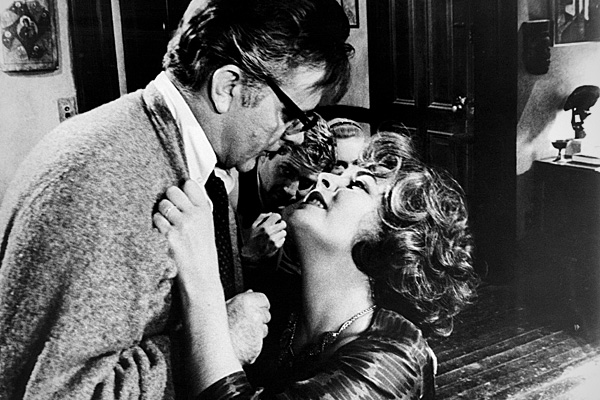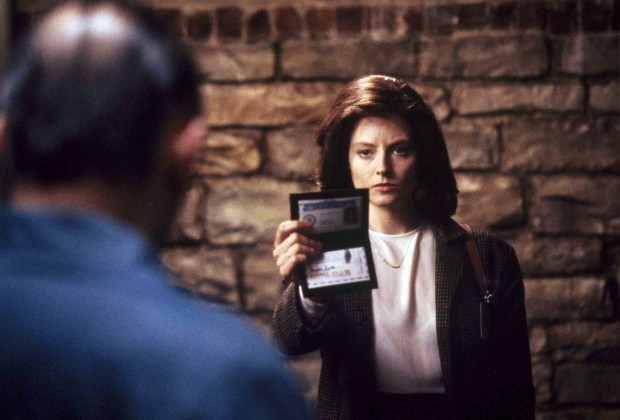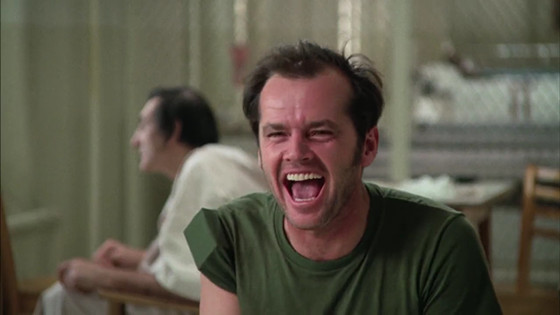5. Who’s Afraid Of Virginia Woolf? (1966)
Oscar-winning performances: Elizabeth Taylor – Best Actress, Sandy Dennis – Best Supporting Actress

There are well-acted movies and then there is Mike Nichols’ “Who’s Afraid Of Virginia Woolf?”, a film that redefined screen acting and whose entire cast of four earned Academy Award nominations for their performances, with Elizabeth Taylor and Sandy Dennis winning Best Actress, respectively Best Supporting Actress.
Starting as a living room dramedy, the film follows some tumultuous hours in the lives of two couples of different ages who have a boozy Saturday night and start prying into each other’s marriages, uncovering lies and secrets, pushing each other’s buttons and, in the end, abandoning the false illusions that pervaded every aspect of their lives.
“Who’s Afraid Of Virginia Woolf?” is a timeless masterpiece, a classic that has aged like fine wine and, 54 years after its release remains a gripping, overly-entertaining and unbelievably modern film. Ernest Lehman’s screenplay adaptation of Edward Albee’s play is as sharp as ever, the performances from its entire cast, especially Elizabeth Taylor and Richard Burton as the middle-aged George and Martha, are breathtaking, Haskell Wexler’s black and white cinematography is stunning (he later worked with Terrence Malick for “Days Of Heaven”) and Mike Nichols’ stylish direction is flawless, even more considering this was his debut film.
4. The Silence Of The Lambs (1991)
Oscar-winning performances: Anthony Hopkins – Best Actor, Jodie Foster – Best Actress

Nearly thirty years after its release in theaters, Jonathan Demme’s famous adaptation of Thomas Harris’ 1988 novel of the same name remains one of the most thrilling films ever made.
Back in 1991, the film proved to be a real success at the 64th Academy Awards, where it was nominated in seven categories and won five awards, also becoming the first horror film (and the only one to this day) to win Best Picture.
However, the most memorable thing about “The Silence Of The Lambs” remains the phenomenal performances from its cast. Anthony Hopkins, who gave an unnerving performance as the cannibalistic serial killer Hannibal Lecter, went home with the Best Actor award, while Jodie Foster won Best Actress for her authentic performance as Clarice Starling, the young FBI trainee who is tasked with interviewing Lecter.
3. One Flew Over The Cuckoo’s Nest (1975)
Oscar-winning performances: Jack Nicholson – Best Actor, Louise Fletcher – Best Actress

One of the three movies to win all five major Academy Awards, Miloš Forman’s famous adaptation of Ken Kesey’s 1962 controversial novel features one of Jack Nicholson’s most memorable performances as R.P. McMurphy, a recidivist criminal who acts crazy in order to be admitted inside a mental institution but ends up giving rise to a rebellion against Mildred Ratched (Louise Fletcher), the tyrannic head nurse of the ward.
Brilliantly directed by Forman, with a masterfully adapted screenplay, and powerful performances from its entire cast, “One Flew Over The Cuckoo’s Nest” is an outstanding tale about man versus establishment, freedom against oppression, stigmatization of mental illness, and the importance of individuality that, nearly half a century after its release, remains as poignant and relevant as it was back in 1975.
2. A Streetcar Named Desire (1951)
Oscar-winning performances: Vivien Leigh – Best Actress, Karl Malden – Best Supporting Actor, Kim Hunter – Best Supporting Actress

It’s strange how the Academy awarded every performance in Elia Kazan’s “A Streetcar Named Desire”, with the exception of Marlon Brando, who, despite being nominated, lost to Humphrey Bogart’s performance in “The African Queen”. Seen today, Marlon Brando’s performance comes across as the most natural between his fellow actors and every scene where the Hollywood legend appears on screen is attention-grabbing.
Based on Tennessee Williams’ 1947 play of the same name, the film follows Blanche DuBois (Vivien Leigh), a disturbed southern belle who, after losing her Mississippi family home to creditors, gives up her job as a high school teacher and moves in New Orleans with her sister Stella (Kim Hunter) and her brother-in-law Stanley (Marlon Brando). Unfortunately, Stanley’s coarse behavior makes it impossible for Blanche to escape the demons of her past.
With brilliant performances, intimate and atmospheric cinematography, and a very well adapted script, “A Streetcar Named Desire” remains one of the most iconic films of Hollywood’s Golden Age.
1. Network (1976)
Oscar-winning performances: Peter Finch – Best Actor, Faye Dunaway – Best Actress, Beatrice Straight – Best Supporting Actress

Sidney Lumet’s seminal film changed the way we perceive television and, to this day, more than 40 years after its release, remains a relevant satire of the way news and media work.
The film stars Peter Finch as Howard Beale, the longtime news anchor of the fictional UBS Evening News who learns that he is about to be fired due to his declining ratings. But when the day comes for him to announce his upcoming retirement, Finch’s character makes an unexpected declaration: he says that he will commit suicide on the next Tuesday’s broadcast. Unsurprisingly, audiences are bewildered, ratings spike and the news show is again on track. But things don’t stop here, as Beale develops an angry, anti-establishment, prophet-like persona, and, with the help of programming department head Diana Christensen (Faye Dunaway), his show turns into a televised madness.
“Network” isn’t as outrageous as it might have seemed back in 1976, yet Sidney Lumet’s flawless direction, Paddy Chayefsky’s smart and ahead of its time script, and a great cast led by Peter Finch’s utterly entertaining performance make this movie a must-see for every film lover.